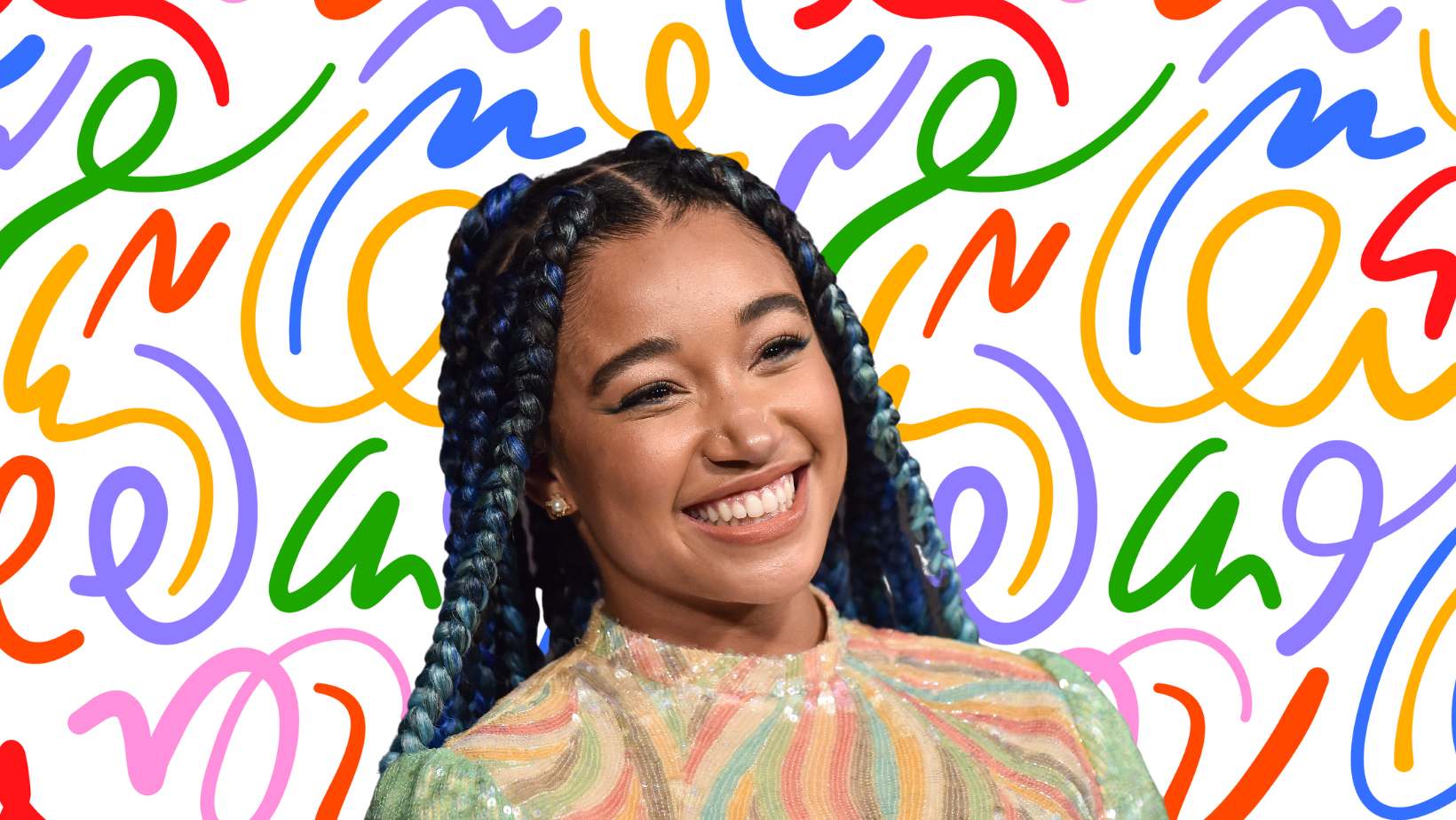Hollywood wasn’t ready for Amandla Stenberg. Hollywood is never ready for a talent that’s not only going to revolutionize the industry, but point out every one of its many shortcomings. And that’s what Stenberg, a Gen Z icon coming into their own across creative mediums, did from the minute they showed up onscreen. While Stenberg’s first film role was playing a young Zoe Saldana in 2011’s Colombiana, her heartbreaking performance as Rue in 2012’s The Hunger Games was the role that had everyone talking about the fresh new talent certain to make waves in the film industry.
Sadly, not all the attention was good. Instead of celebrating Stenberg’s performance as Rue, the 11-year-old “tribute” who meets a tragic end, online trolls could only focus on how they wanted the movie to be cast. Rather than being able to enjoy their newfound fame, Stenberg found herself at the center of a racist debate about how bigots thought the character “should” have been cast—i.e., as a blonde white girl.
But Stenberg wasn’t about to be trolled off the playing field. They persevered, only becoming more outspoken about their Blackness, queerness, and feminism, and continue to challenge an industry famous for hurting talented young people who don’t fit the straight, white, cis mold.
In 2015, at only 16 years old, Stenberg entered the music scene with a fresh, thrilling new EP. She also released the viral video “Don’t Cash Crop on My Cornrows”, created as a response to the Kardashians and other white influencers trying to market box braids as a “new beauty trend,” Stenberg’s “crash discourse” on Black culture asked the question that needed to be asked, and still needs to be asked: “What would America be,” Stenberg famously wondered, “if we loved black people as much as black culture?”
Stenberg continued to fight, in a notoriously racist industry, to find projects that mattered to them, and to fight to be seen. In 2016, they were featured alongside young Black luminaries like Chloe and Halle Bailey and Quvenzhané Wallis in Beyoncé’s visual album “Lemonade.” In 2018, they starred in the film adaptation of the best-selling Angie Thomas book The Hate U Give, about a young Black student who becomes an outspoken Black Lives Matter activist after being traumatized by the murder of her best friend at the hands of police. Stenberg continued to take on complex projects that grappled with racism, sexism, and inequality, all while remaining an important voice in youth culture.
Somewhere in the midst of this insane workload, Stenberg also came out as pansexual and nonbinary.
“I never did not identify as a feminist, but I didn’t know where I belonged because I didn’t see myself represented,” Stenberg said in a 2016 interview. “As I started to explore my gender identity, I didn’t know how I could claim the title of feminist without subscribing to the gender binary. I thought I had to be a proud woman to be a feminist. Then I came to the realization that I can be proud of women without necessarily identifying as one. A lot of people are rejecting the binary—that’s the future of feminism.”
And after their star turn in last summer’s iconic A24 film Bodies, Bodies, Bodies, Stenberg was once again put in the painful position of having to call attention to the racism and sexism that still poisons the industry. After a New York Times reviewer drew attention to Stenberg’s body in a review of the film, Stenberg had had enough. After calling the critic out in a cheeky DM, Stenberg took to Instagram stories to explain that, while they initially meant the DM as a joke, they’ve faced criticism and needless commentary about their body throughout their career.
Related:
Sage Dolan-Sandrino Is Advocating For Artistic Change & Inclusivity
“I exist. I am not just some figment of your imagination, not just some dinner conversation.”
“The amount of commentary I receive on my boobs is so extreme,” Stenberg said, “and this has happened since I was a teenager.”
Once again, Stenberg found herself being criticized for something other than her performance despite delivering a show-stopping turn in Bodies Bodies Bodies.
If there’s anything we know about Stenberg by now, it’s that they’re not about to take any sh*t. The outspoken, talented, and dynamic artist has already spent years fighting against Hollywood’s sexism, queerphobia, and anti-Blackness, and she’s just getting started.
Don't forget to share:
Discover more

Help make sure LGBTQ+ stories are being told...
We can't rely on mainstream media to tell our stories. That's why we don't lock our articles behind a paywall. Will you support our mission with a contribution today?
Cancel anytime · Proudly LGBTQ+ owned and operated
Read More in 25 Under 25
The Latest on INTO
Subscribe to get a twice-weekly dose of queer news, updates, and insights from the INTO team.
in Your Inbox














